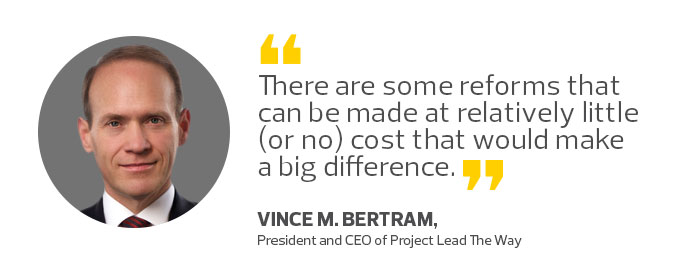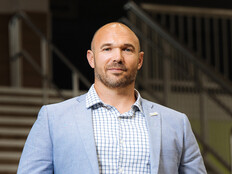Computer Science (Not Just Coding) Needs a Bigger Role in STEM Education
For more than a decade, educators, business leaders and policymakers have talked about STEM — an acronym that stands for science, technology, engineering and mathematics — but a new study suggests that at least one increasingly important field is being left out of STEM education, Computer Science, and it is vital to our nation’s students and economic prosperity.
“The Case for Improving U.S. Computer Science Education,” a recent report from the Information Technology and Innovation Foundation (ITIF), a nonprofit science and technology think tank, is compelling.
Surging Demand in Computer and Math Fields
Co-authors Adams Nager and Robert D. Atkinson note that computer science, which they call “the most important STEM field for a modern economy,” has “the fewest number of high school students taking its classes and by far has the most room for improvement.”
Computer science, they say, is still secondary to what they call the “biology, chemistry, physics framework” that has been central to high school science education since the late 19th century. Therein lies the problem.
“Despite the growing use of computers and software in every facet of our economy,” ITIF reports that the supply of computer science education in the U.S. has decidedly not kept pace with the “surging demand.”
Underscoring the imperative to address this shortfall, the U.S. Bureau of Labor Statistics has estimated that there will be more than 1.3 million open positions in computer- and math-related fields by 2022. The BLS further projects that 50 percent of the 2.8 million job openings in STEM-related fields through 2018 will be for computer specialists.

Clearly, the institutional inertia needs to be broken. Nager and Atkinson have laid out what they see as the path forward for filling the educational pipeline for high-tech jobs.
The first step requires increasing the disturbingly small percentage of U.S. high schools that offer computer science courses — currently, only about 25 percent, the ITIF report notes. The courses that many of those high schools offer, the authors point out, “lack rigor, or focus on computer use or just coding, instead of delving into computer science principles.”
Equally troubling is the fact that access to computer science classes is concentrated primarily in affluent school systems. It is a tragedy that less than 10 percent of students taking the Advanced Placement exam in computer science are Hispanic, and less than 4 percent are black. There’s also a gender gap, with just 22 percent of those AP test-takers being female.
There are some reforms that can be made at relatively little (or no) cost that would make a big difference; for instance, reforming the curricula of existing technology classes in secondary schools to focus on core concepts of computer science. Likewise, states could allow computer science courses to count toward math and science graduation requirements.
Perhaps the most intriguing recommendation of the ITIF report would be to teach computer science in all high schools in a way that makes the subject engaging by giving students projects to complete rather than facts to memorize.
Start Teaching Computer Science Early
If there’s one glaring issue the ITIF report overlooks, it is that the challenge of addressing the computer science skills gap — or the skills gap in any STEM field — begins well before high school. Students make decisions about whether they’re good at math and science as early as second grade. If we believe we’re going to fundamentally shift the supply of workers who are skilled in the fields that define the modern economy just by offering more courses at the high school level, we’re kidding ourselves.
We have to inspire students at an earlier age, demystify subjects like computer science in STEM education and help them understand how math and science are tools to solve problems rather than equations to solve for a test.









